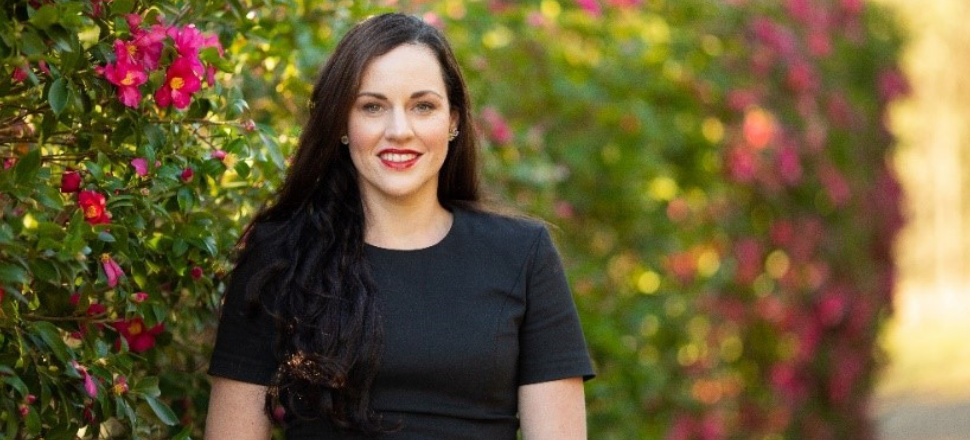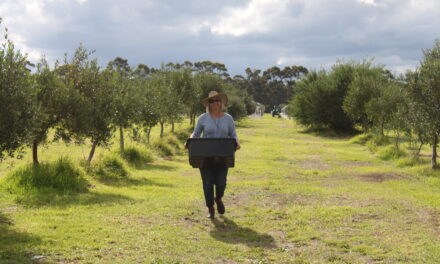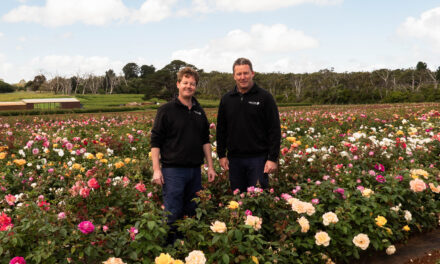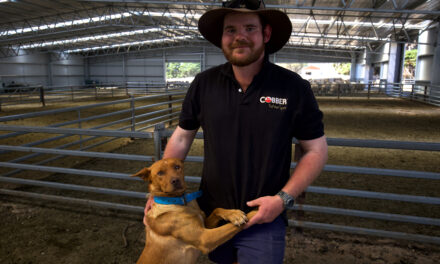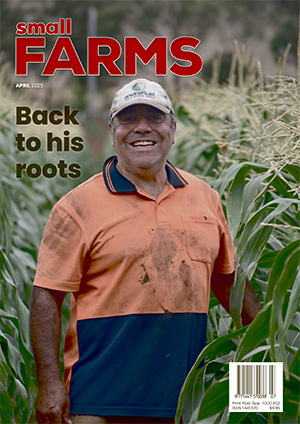With more than 500 metric tonnes of bananas being discarded in North Queensland every week, a banana grower and food waste innovator has identified oversupply as a major threat to both banana farmers and other primary producers.
She is focusing on how farmers can overcome supermarket demands for unblemished fruit by creating value-added products from their excess produce – a key step to combating the alarming levels of food waste across these industries.
Krista Watkins (pictured), whose family grows bananas at Walkamin, in Far North Queensland, will be elaborating on how farmers can find new markets for excess produce at the upcoming Asia Pacific (APAC) Food Safety Conference – the leading food safety event in the Asia Pacific for retail, agriculture, food manufacturing and food-service professionals, organised by SAI Global, a trusted global leader in risk management solutions.
The issue of oversupply
Named AgriFutures Australian 2018 Rural Woman of the Year, Krista, who together with her husband is the first and biggest commercial producer of green banana flour in the world, made the leap from farmer to food manufacturer several years ago, after becoming disillusioned with the vast amounts of waste in the banana industry.
“We experienced two devastating cyclones, Cyclone Larry and Cyclone Yasi, which made us worry about all the excess bananas lying around. Vast amounts went to waste, as we couldn’t sell them supermarkets due to their size and shape irregularities.”
Learning that there was not a market for imperfect bananas, the couple set up their company Natural Evolution Foods. Rather than discarding rejected bananas, they began commercially producing rare gluten-free, green banana flour.
“Over the last few years, demand for our banana flour has grown exponentially, not only due to it being gluten free but because it is one of the highest resistant starch food sources in the world.”
“It’s great that we’ve been able to create another market for our ‘unwanted’ produce, instead of having to plough it back into the paddock. We’ve also saved on packaging and freights costs, especially when prices for bananas were too low due to oversupply in the fresh fruit market.”
Since completing their food processing factory last year, Krista estimates Natural Evolution has processed more than 90,000 metric tonnes of green banana waste – and now they are applying their patented technology to help other farmers process foods, which would otherwise go to waste.
A new market: Revolutionising unwanted produce
In her presentation, Krista will discuss how, after several years of perfecting the flour production process of green bananas, she and her team at Natural Evolution are focusing on what they can do for other industries to minimise food waste.
“The problem of oversupply is not unique to the banana industry – it has been happening on farms throughout Australia, such as in the sweet potato and broccoli industry.
“Last year, my husband and I were disheartened to learn that a farmer was looking at putting an entire paddock of broccoli that he had harvested back into the ground, because there were too many broccolis already in the supermarkets.”
“We took his harvested plant into our factory and were able to make broccoli flour out of it. Not only was he saved on paying for vast amounts of his crop to be taken away, but he was paid for his waste.”
“In a time when Australian manufacturing is in a downturn, we’ve been able to reinvigorate an entire industry, because of our unique technology.
“From broccoli, sweet potato, cauliflower, carrot, beetroot, we can create value-added products for farmers who are grappling with the challenges of a flooded market and help them to take innovative and sustainable approaches to minimising their waste.”
Each year the APAC Food Safety Conference attracts delegates involved in the development, implementation and maintenance of food safety programs across manufacturing, food services, food science, produce and retail.
The 2019 conference will address current issues such as food tampering, seafood fraud, food exports, and emerging superfoods.
Other speakers at the APAC Food Safety Conference will include:
- Jill Hoffman, Director of Global Quality Systems and Food Safety at McCormick & Company, USA, who will present ‘Managing Food Integrity in a Complex Supply Chain’.
- Ron McNaughton, Head of the Scottish Food Crime & Incidents Unit at Food Standards Scotland, who will present ‘An Intelligence Led Approach to Tackling Food Crime’.
- Dr Craig Shadbolt, Food Incident Response & Complaints Manager at the NSW Department of Primary Industries, who will discuss ‘Recent Outbreaks with High Risk Horticulture’.
- Felipe Favaro, General Manager at Hemp Foods Australia, who will discuss ‘Hemp Foods & Food Safety, Challenges and Opportunities’.
- Craig McGrath, Detective Inspector at Queensland Police Service, who will discuss ‘Police Investigative Perspective – Lessons Learnt’ on the strawberry tampering incident in Queensland.
- Anne Gabriel, Oceania Program Director for the Marine Stewardship Council (MSC), who will discuss ‘Tightening the Net on Seafood Fraud’.
The 26th APAC Food Safety Conference will be held in Sydney at Doltone House, 48 Pirrama Road, Pyrmont, on 20-22 August from 9am-5pm.
Visit www.foodsafetyapac.com for more details.

